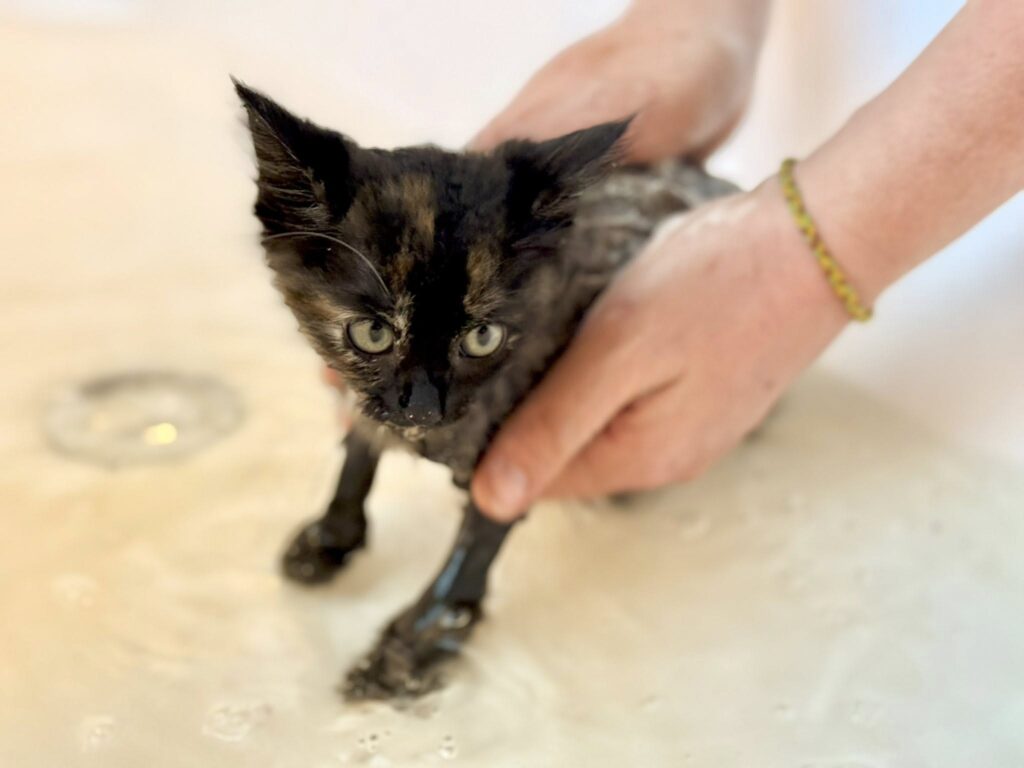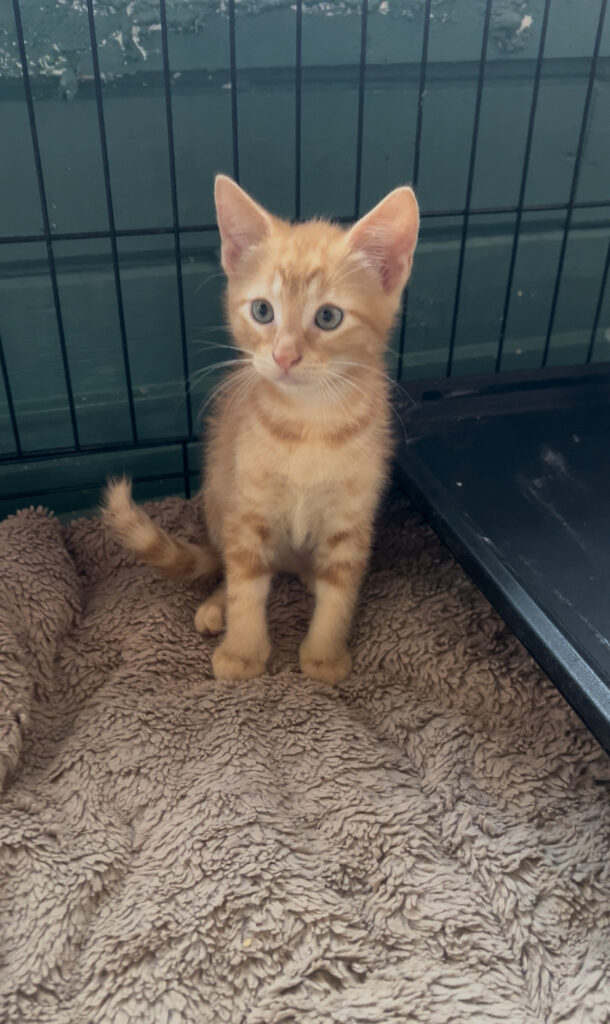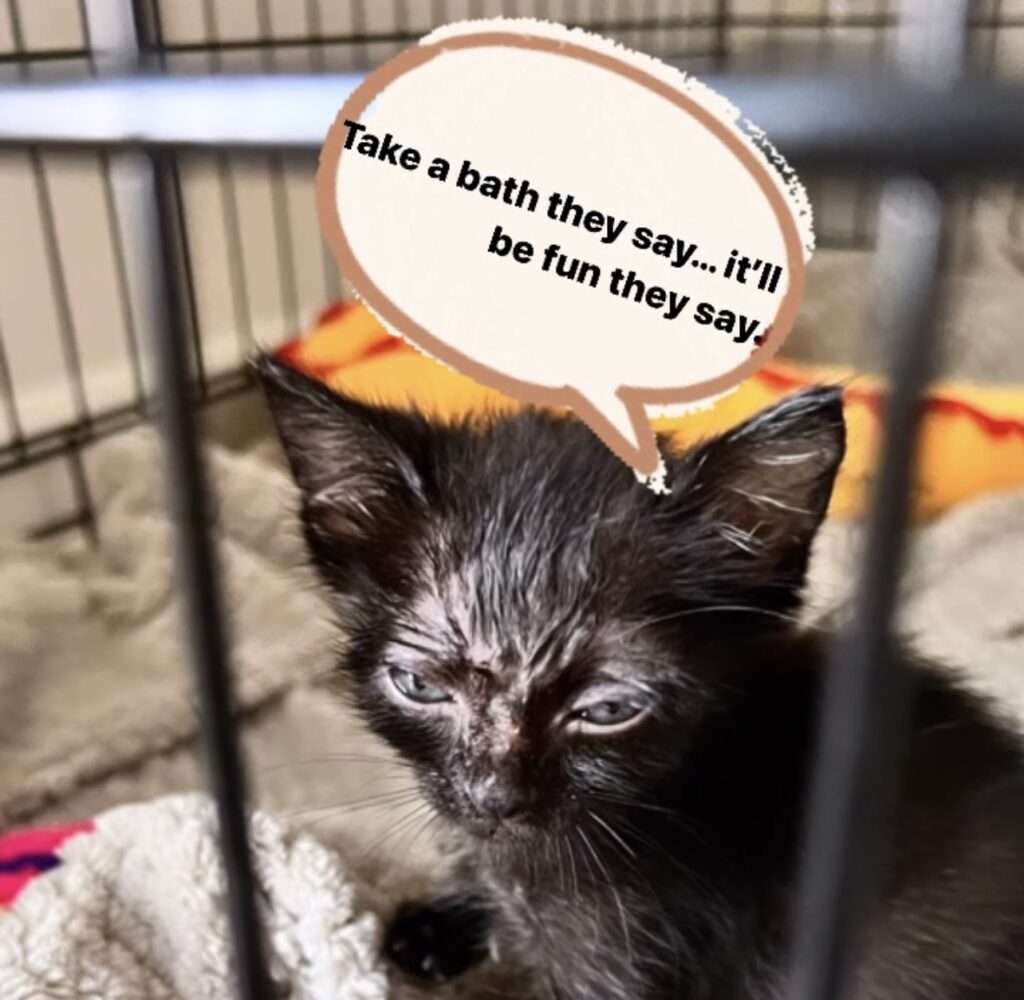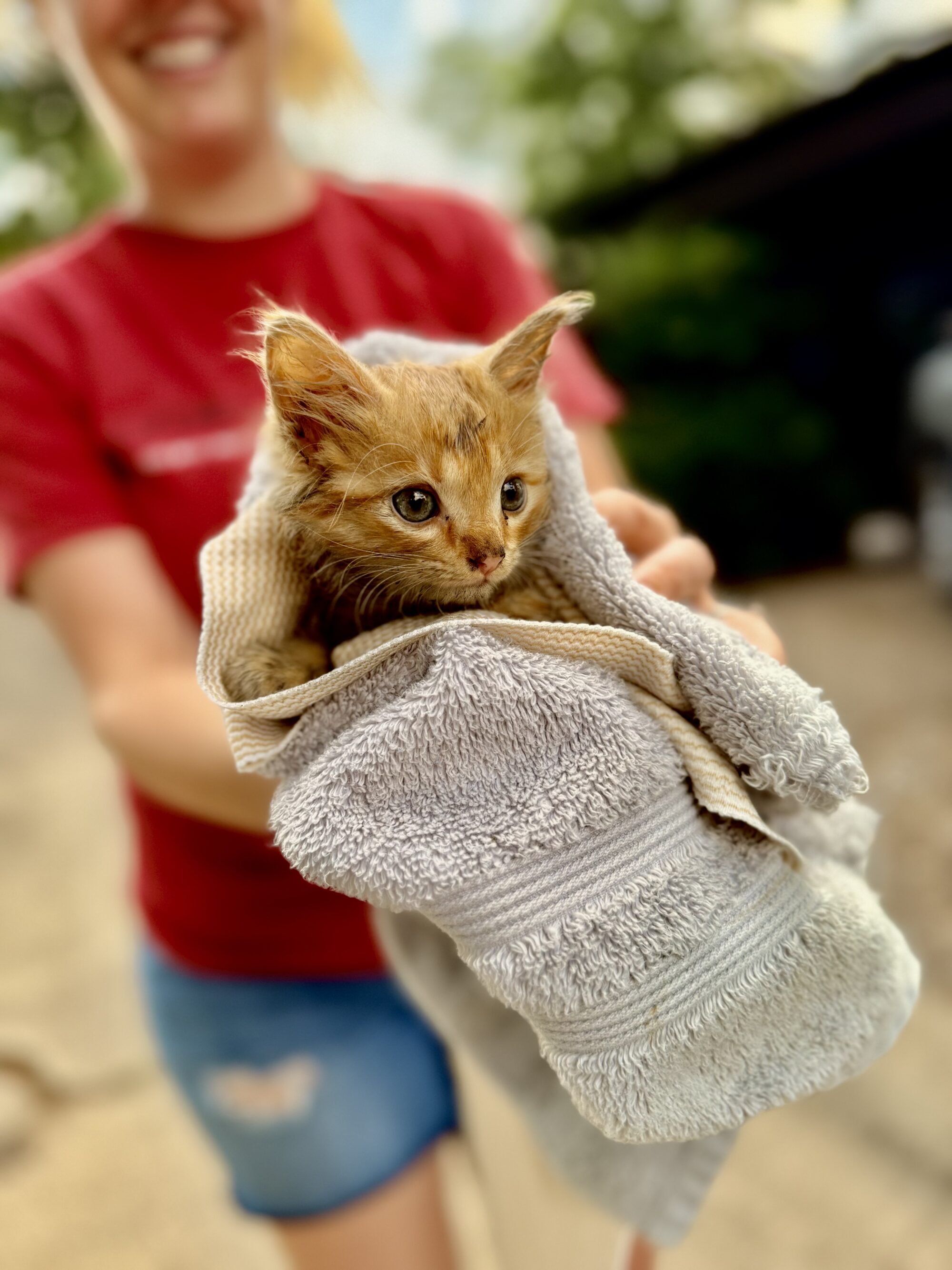By Katie Gill – The Kitten Cradle
📝 Intake and Initial Assessment
When a new kitten arrives at The Kitten Cradle, it marks the beginning of a whole new chapter. Whether the kitten is rescued from a shelter, found abandoned, or surrendered by a kind-hearted stranger, we treat each intake with urgency and compassion. The first 72 hours are some of the most important in a kitten’s journey, setting the tone for their physical recovery and emotional development.
Upon arrival, we start with a complete intake assessment. Each kitten is weighed, checked for visible injuries or signs of illness, and evaluated based on their age and development. We also immediately administer basic care like deworming and flea prevention. If the kitten is healthy and old enough, we give the first round of vaccinations as well. All this information is carefully logged so we can track their progress and ensure they receive individualized care moving forward.

🛁 The Royal Treatment: Bath and Comfort
Many of our kittens come in dirty, matted, or covered in fleas—especially if they’ve spent time outdoors or on the streets. We give them a warm, gentle bath with kitten-safe shampoo, followed by a thorough flea combing and a wrap in soft towels to help them dry off. They’re then placed in a cozy recovery space with a blanket, snuggle toy, and fresh bedding. While it might sound like a small thing, this bath and comfort routine is often the first time a kitten truly feels safe and cared for.

🔍 Monitoring Health During Quarantine
For the first 72 hours, kittens stay at The Kitten Cradle for observation and assessment—unless a trained foster is immediately available and ready to provide close monitoring. During this time, we treat them as if they could be contagious. We keep them isolated from other cats and observe for symptoms like sneezing, coughing, watery eyes, lethargy, or poor appetite. We also monitor their hydration, weight gain, and energy levels. One of the most surprisingly important things we track is their stool. That’s right—poop! Changes in color, consistency, or frequency can be early signs of illness or dietary issues. Who knew poop could tell you so much?
🤍 Emotional Recovery and Trust-Building
Kittens who are scared, undersocialized, or feral need time and patience. These first few days are often about decompressing in a quiet, low-stress environment. We offer soothing voices, soft petting, and simply being nearby to help them begin associating humans with safety and kindness. Every kitten moves at their own pace, and our goal is never to rush—but rather to support them as they begin to heal emotionally as well as physically.

🏡 Transitioning to a Foster Home
After the initial 72-hour assessment period, we determine whether a kitten will remain at The Kitten Cradle a bit longer or if they’re ready to move to a foster home. This decision depends on their health, age, and socialization progress—as well as the availability of a foster who’s the right match for their needs. Fosters are a vital part of our rescue work, offering a safe, loving environment where kittens can grow, play, and learn what it means to be part of a home.
🙋♀️ How You Can Help: Become a Foster
We can never have too many foster homes. Every foster family allows us to say “yes” to more kittens in need. If you’ve ever considered opening your heart and home to a kitten, now is the time. We provide all the supplies, veterinary care, and guidance—you provide the love and space.
Interested in becoming a foster? [Click here to sign up . With your help, we can make sure every kitten has a safe place to land and a real chance at a happy, healthy life.


